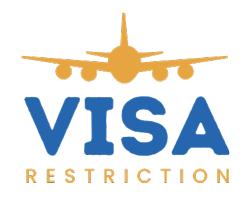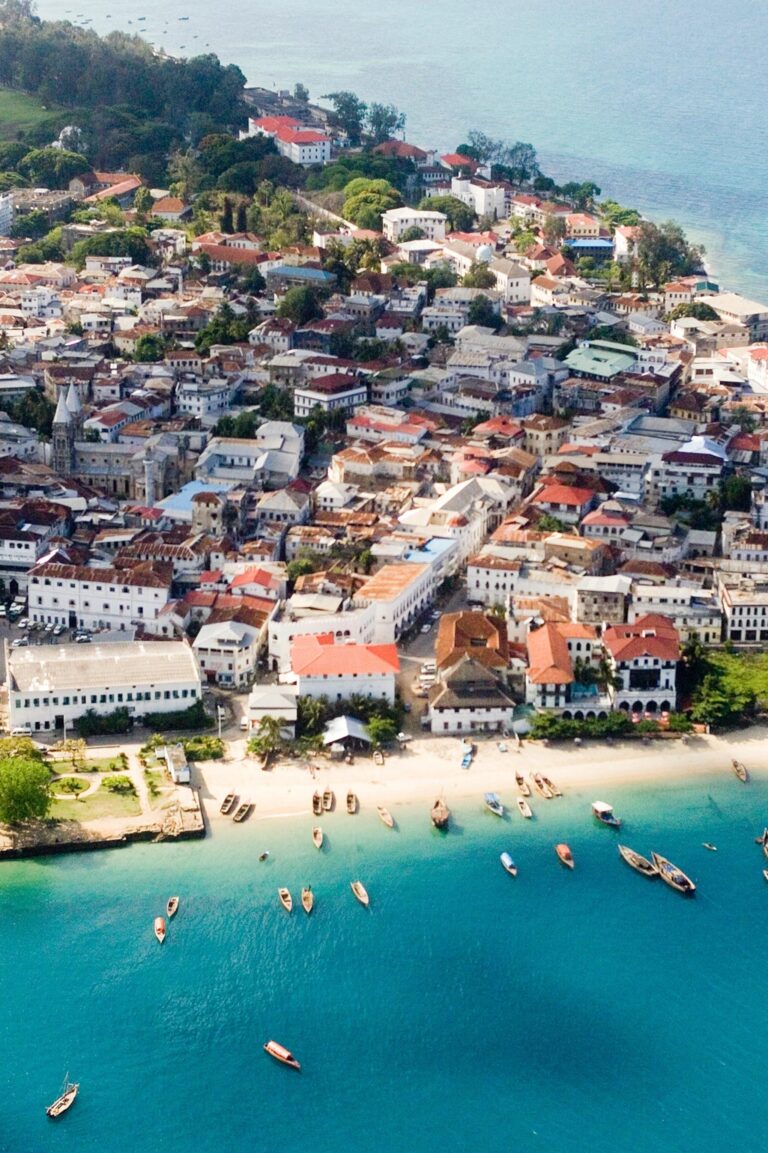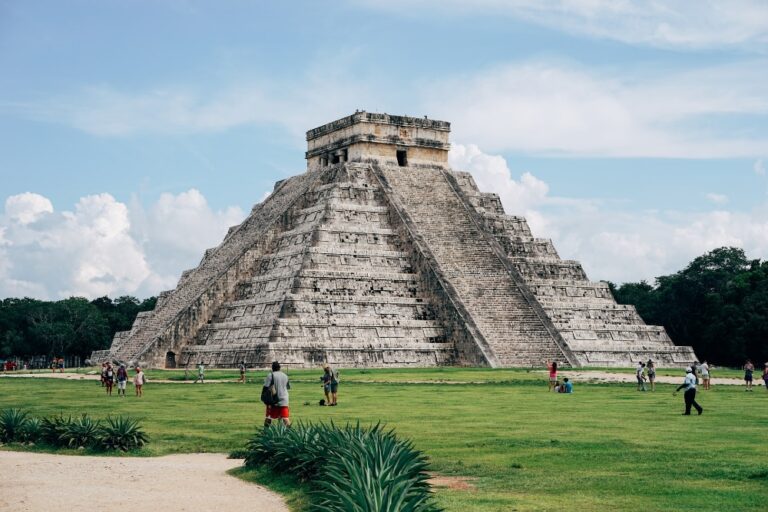Is Greece Safe to Travel To: Visitor Overview

Greece Travel Safety Overview
Considering a trip to Greece? Understanding the safety landscape will help ensure a smooth and enjoyable experience. This section provides an overview of the current travel advisory and safety rankings in Greece.
Current Travel Advisory
As of August 15, 2024, Greece has been assigned a Level 1 travel advisory by the U.S. Department of State, indicating that travelers should exercise normal precautions when visiting the country (Travel.State.Gov). This advisory suggests that Greece is generally safe for tourists. However, it’s always wise to stay informed about local conditions and exercise standard safety measures.
Safety Ranking and Statistics
Greece is considered the safest country in the Mediterranean, with no history of terrorist attacks from groups like Al-Qaeda or ISIS (Berkshire Hathaway Travel Protection). When analyzing safety rankings and crime statistics, Greece holds a relatively favorable position compared to other popular tourist destinations.
| Safety Measure | Greece | Comparison to Europe |
|---|---|---|
| Global Peace Index | Middle Rank | Comparable to other European nations |
| Homicide Rate | Low | Lower than major European cities |
| Violent Crime | Rare among tourists | Less frequent than some European cities |
| Political Stability | High | Stable political environment |
| Terrorist Attacks | None reported | Safer compared to Mediterranean peers |
References for the table: Berkshire Hathaway Travel Protection and Greece Insiders
Violent crime in Greece, especially among tourists, is relatively rare. While the Greek islands are especially known for their tranquil and secure environments, it’s still advisable to avoid unfamiliar or deserted areas at night and seek assistance from local authorities or accommodation if you encounter suspicious activity (Greece Insiders).
For more information on safety in other travel destinations, you might want to check out our articles on is it safe to travel to mexico and is it safe to travel to thailand.
Safety in Different Regions
When planning a trip to Greece, you may be wondering, is Greece safe to travel to? Understanding the safety of various regions can help you make an informed decision. Here’s a breakdown of safety in different areas of Greece, focusing particularly on Athens and other popular tourist cities and islands.
Athens: Safe Areas
Athens is generally considered a safe city, with the majority of travelers experiencing trouble-free visits. Here are some of the safest neighborhoods in Athens:
- Plaka: Known for its picturesque streets and historical significance, Plaka is a charming area where you can wander safely.
- Kolonaki: This upscale neighborhood offers a luxurious and secure environment with boutique shops and high-end dining.
- Koukaki: A favorite among locals and visitors alike, Koukaki provides a warm community feel and is considered safe for travelers.
Athens: Unsafe Areas
While Athens is relatively safe, there are certain areas where caution is advised. Some neighborhoods have higher instances of drug dealing, pickpocketing, and street crimes. These areas include:
- Omonia: Known for issues such as drug-related activities and street crimes, Omonia can be risky, especially at night.
- Vathi: Similar to Omonia, Vathi has a reputation for being less safe due to criminal activities.
- Exarcheia: This area is known for political activism and occasional unrest, making it less secure for tourists.
Tourist Cities and Islands
Greece is home to numerous tourist cities and islands, each offering unique experiences. Here is a safety overview of some popular destinations:
- Santorini: Generally safe, but photography scams are prevalent, where scammers may claim you broke their camera to extort money.
- Mykonos: Known for its lively nightlife, Mykonos is safe but be aware of crowded areas where pickpocketing can occur.
- Corfu and Rhodes: These islands are considered safe but remain cautious of common travel scams like photography scams.
- Crete: One of the larger islands, Crete is safe but be mindful of petty crimes in crowded areas.
| Tourist Destination | Safety Level | Notable Issues |
|---|---|---|
| Santorini | Safe | Photography scams |
| Mykonos | Safe | Pickpocketing in crowded areas |
| Corfu | Safe | Photography scams |
| Rhodes | Safe | Photography scams |
| Crete | Safe | Petty crimes in crowded areas |
For more detailed information on related travel destinations, check out our articles on is it safe to travel to Turkey, is it safe to travel to Egypt, and is it safe to travel to Spain.
By understanding the safe and unsafe areas, you can better plan your trip and enjoy your stay in Greece. Always stay vigilant and take common travel precautions to ensure a pleasant travel experience.
Common Travel Scams in Greece
When visiting Greece, familiarity with common travel scams can help ensure that your trip is safe and enjoyable. Below are some frequent scams to watch out for:
Photography Scams
In popular destinations such as Athens, Santorini, Mykonos, Corfu, and Rhodes, photography scams are prevalent. These scams typically involve scammers approaching tourists to ask for their help in taking a picture. After the photograph is taken, the scammer accuses the tourist of breaking the camera and demands compensation (Digit Insurance). To avoid this scam:
- Politely decline requests to use your camera.
- Keep your distance from anyone insisting on unsolicited photo assistance.
Taxi Scams
Taxi scams are another common issue in Greece, especially around airports and well-known tourist attractions. In these scenarios, taxi drivers might:
- Overcharge by avoiding the meter or taking longer routes.
- Suggest taking you to locations where they receive a commission.
- Create a scene if you dispute their fare or route.
To prevent falling victim to taxi scams (Digit Insurance):
- Always insist on using the meter.
- Use licensed and accredited taxi services.
- Pre-book taxis through reputable companies when possible.
Pickpocketing Incidents
Pickpocketing is a frequent concern in Greece, particularly in crowded places, and is the most common crime targeting tourists. Areas such as the metro, public buses, queues, and trains are hotspots for pickpockets. Petty theft often occurs in crowded locations like markets, tourist sites, and public transportation. Thieves sometimes use distractions to steal from unsuspecting visitors (Digit Insurance; Greece Insiders Travel).
To protect yourself from pickpocketing:
- Be aware of your surroundings and belongings.
- Avoid carrying large sums of cash.
- Use secure pouches or money belts.
- Keep copies of important documents and passports in a separate, safe location.
For more information on travel safety, you may also be interested in reading about is it safe to travel to france right now.
Staying informed about these common travel scams can significantly improve your overall travel experience in Greece. Visit our articles on is it safe to travel to colombia or is it safe to travel to argentina if you are planning a trip to other destinations.
Tourism Regulations in Greece
New Land-Use Regulations
Greece is implementing strict new land-use regulations to manage tourism growth and prevent overcrowding (ETIAS). These regulations include restrictions on short-term rentals in heavily trafficked areas such as Mykonos, Athens, and Thessaloniki.
- Mykonos: Short-term rentals are limited to just 30 days annually.
- Athens and Thessaloniki: Short-term rentals are restricted to 60 days with caps based on hotel beds in municipal units.
The Greek government aims to encourage upgrades to 4- and 5-star hotels and resorts in these saturated areas. They promote mixed-use projects combining hotels and residential spaces, and mandate renovations for unused properties, with the risk of demolition for non-compliance.
Additionally, new large-scale resorts are allowed on uninhabited islands with significant limitations on size and proximity to shorelines. Environmental protections are also strengthened, including increased minimum distance requirements for new developments from shorelines to mitigate climate change impacts.
| Location | Restriction | Limitation |
|---|---|---|
| Mykonos | Short-term rentals | 30 days per year |
| Athens | Short-term rentals | 60 days per year |
| Thessaloniki | Short-term rentals | 60 days per year |
Impact on Tourists and EU Travelers
These new regulations create some uncertainty for European Union (EU) travelers. Access to accommodations, residences, and long-stay opportunities in popular destinations will be impacted, potentially affecting booking availability.
Tourists may need to adjust their travel plans, considering these new limitations when planning longer stays. Adapting to Schengen visa requirements and ETIAS policies will also be necessary. Starting in 2025, the new policies may influence how visitors navigate their trips to Greece.
| Aspect | Impact |
|---|---|
| Accommodations | Limited short-term rental availability |
| Long-Stay Opportunities | Stricter regulations on extended stays |
| Schengen Visa Requirements | Adaptation needed for compliance |
| ETIAS Policies | Changes beginning in 2025 |
For more information on the safety of traveling to other destinations, check out our articles on is it safe to travel to mexico and is it safe to travel to egypt.
Adapting to these new regulations will help ensure a smoother travel experience in Greece, allowing you to enjoy the rich culture and stunning landscapes safely.
Crime Precautions for Travelers
When asking “is Greece safe to travel to,” being aware of crime precautions is crucial. Here are some strategies to help you stay safe while exploring Greece.
Safety Tips in Public Transportation
Public transportation in Greece, especially the metro system in Athens, is well-maintained, efficient, and generally safe for tourists. For added safety, licensed taxis and ride-hailing apps like Uber are recommended. Here are some tips:
- Use licensed taxis: Always use licensed taxis, which are generally safe, especially at night.
- Be cautious of your surroundings: Stay aware, particularly in crowded areas like metro stations and buses.
- Consider pre-booking transportation: Pre-booked services can add an extra layer of safety.
Visit our page on tips for straightening curly hair for more safety tips.
Precautions Against Pickpocketing
Pickpocketing is a common issue in Greece, especially in crowded areas like metro stations, public buses, waiting lines, and trains. Here are some measures you can take:
- Keep valuables secure: Use anti-theft bags and keep them close to your body.
- Stay alert in crowded areas: Be extra vigilant in busy locations where distractions are common.
- Avoid displaying wealth: Do not flaunt expensive jewelry or large sums of cash.
For more detailed safety measures, refer to is it safe to travel to mexico.
Emergency Contacts in Greece
Should you encounter an emergency in Greece, knowing the local emergency contacts is essential:
| Service | Contact Number |
|---|---|
| Police | 100 |
| Tourist Police | 1571 |
| Emergency Medical Services (EKAB) | 166 |
| All Emergencies (including medical) | 112 |
These numbers are critical in case of emergencies such as crime, health issues, or accidents. For more information on staying safe in other destinations, visit is it safe to travel to jamaica or is it safe to travel to the dominican republic.
By following these precautions, you can enjoy your trip to Greece with greater peace of mind.
Emergency Preparedness in Greece
Healthcare and Pharmacy Access
In Greece, healthcare services are readily available for tourists, ensuring their well-being during their stay. You can find various healthcare facilities, including hospitals and clinics, particularly in urban and tourist areas. Pharmacies are also widely accessible and well-stocked with a variety of medications (Greece Insiders). Emergency medical services can be reached by dialing 112.
| Service | Contact |
|---|---|
| Emergency Medical Services | 112 |
| Ambulance | 166 |
| Fire Department | 199 |
For minor health concerns or prescription refills, visit any pharmacy. Pharmacists in Greece often speak English and can provide valuable advice and assistance.
Natural Disaster Awareness
Greece is prone to natural disasters such as earthquakes and wildfires, especially in the summer months (Greece Insiders). It is crucial for travelers to be aware of evacuation procedures and adhere to safety guidelines to prevent accidents.
Earthquake Preparedness:
- Identify safe spots in your accommodation, such as under sturdy furniture.
- Have an emergency kit and a plan in place.
- After an earthquake, expect aftershocks and avoid buildings until they’re checked for damage.
Wildfire Safety:
- Stay updated on local news regarding fire risks and weather conditions.
- Avoid outdoor activities that could ignite fires, particularly in rural areas.
- If you encounter a wildfire, evacuate immediately and follow the instructions of local authorities.
Smart Traveler Enrollment Program (STEP)
The Smart Traveler Enrollment Program (STEP) is a free service provided by the U.S. Department of State. By enrolling in STEP, you can receive important information from the Embassy about safety conditions in Greece, helping you make informed decisions about your travel plans. Enrolling in STEP also allows the Embassy to contact you in an emergency, such as a natural disaster or civil unrest.
| Benefit | Description |
|---|---|
| Receive Alerts | Updates on safety conditions and travel advisories |
| Embassy Contact | Allows the Embassy to reach you in case of an emergency |
| Stay Informed | Information on local events and situations in real-time |
For tourists curious about the safety of other travel destinations while planning their trip, you can refer to related articles on travel safety such as is it safe to travel to Mexico or is it safe to travel to Jamaica to make well-rounded decisions.
By taking these precautions and staying informed, you can ensure a safe and enjoyable trip to Greece. For more tips on travel safety and updates, check relevant resources and consider enrolling in the STEP program before your departure.






